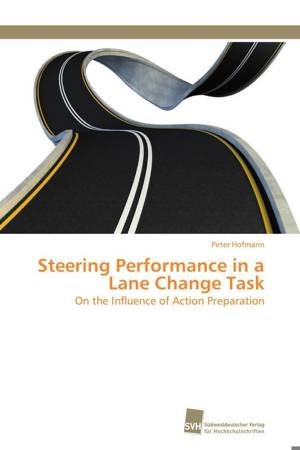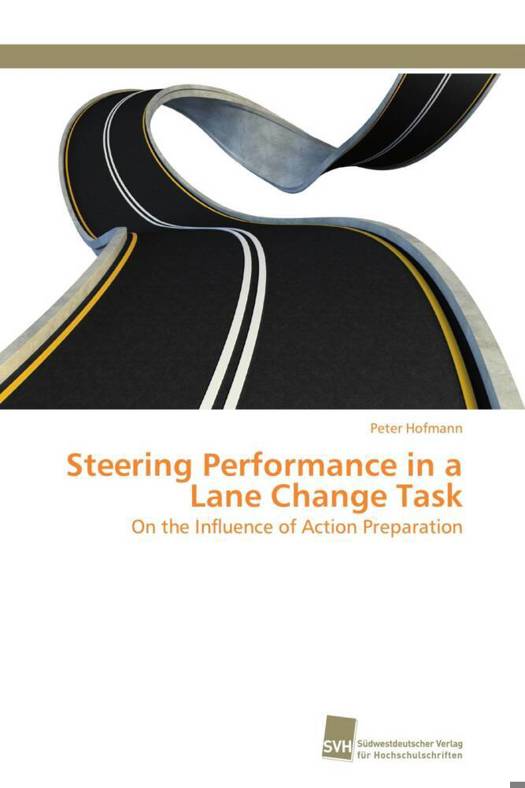
- Afhalen na 1 uur in een winkel met voorraad
- Gratis thuislevering in België vanaf € 30
- Ruim aanbod met 7 miljoen producten
- Afhalen na 1 uur in een winkel met voorraad
- Gratis thuislevering in België vanaf € 30
- Ruim aanbod met 7 miljoen producten
Zoeken
Steering Performance in a Lane Change Task
On the Influence of Action Preparation
Peter Hofmann
Paperback | Duits
€ 78,95
+ 157 punten
Omschrijving
Cognitive psychological experimental work on action preparation is generally conducted under highly controlled laboratory conditions. By contrast, psychological research on driving tends to be conducted under realistic conditions, e.g. in the field or in sophisticated driving simulators. Despite these different approaches, the concept of action preparation should be highly applicable to vehicle steering, since driving requires the driver continuously to anticipate immediate and future traffic situations. Starting from this assumption, the author Peter Hofmann transfers basic experimental paradigms on action preparation into a practical lane change task. In a series of seven experiments predictions derived from cognitive psychological groundwork are tested in this applied setting The results illustrate the relevance of concepts of action preparation for driving maneuvers, since the mechanisms of information processing in reaction time tasks and in continuous bimanual steering tasks seem to be comparable. Action preparation mechanisms also seem to optimize response execution. This book is directed at a scientific audience, in basic as well as in applied psychological research.
Specificaties
Betrokkenen
- Auteur(s):
- Uitgeverij:
Inhoud
- Aantal bladzijden:
- 180
- Taal:
- Duits
Eigenschappen
- Productcode (EAN):
- 9783838127194
- Verschijningsdatum:
- 5/07/2011
- Uitvoering:
- Paperback
- Afmetingen:
- 150 mm x 220 mm
- Gewicht:
- 287 g

Alleen bij Standaard Boekhandel
+ 157 punten op je klantenkaart van Standaard Boekhandel
Beoordelingen
We publiceren alleen reviews die voldoen aan de voorwaarden voor reviews. Bekijk onze voorwaarden voor reviews.







